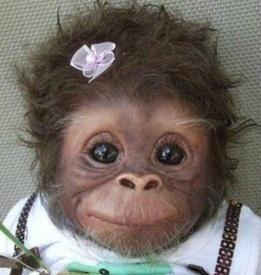This could make your banana even better for you

Jacobedward02
Posts: 24 Member
Imagine this… a fruit that has been altered to be more nutritious. Would you buy it if you knew it was healthier? How about if you knew that the alteration would make it taste better?
Well that theory isn’t too far off. New advancements in gene modification could bring crops like bananas and pears to your nearest supermarket that last longer and are more nutritious. If you’re trying to eat more unprocessed whole foods to reap the benefits, scientific enhancement sounds like a good thing.
http://www.belmarrahealth.com/weight-management/functional-foods-weight-loss/this-could-make-your-banana-even-better-for-you/
Well that theory isn’t too far off. New advancements in gene modification could bring crops like bananas and pears to your nearest supermarket that last longer and are more nutritious. If you’re trying to eat more unprocessed whole foods to reap the benefits, scientific enhancement sounds like a good thing.
http://www.belmarrahealth.com/weight-management/functional-foods-weight-loss/this-could-make-your-banana-even-better-for-you/
-3
Replies
-
The page wouldnt open for me - however, I am quite happy with bananas in the form I get them now, no need to interfere and make them 'more nutritous' and whether they are then any better for me is doubtful.
-
also the taste of them is fine now, no need for improvement. Taste is so subjective anyway - I'm not sure how anything can be made to taste better for everyone.0 -
Interesting...I guess, but the idea of gene mixing in our crops makes me nervous. We just don't know the long term effects - so I am happy with eating my 'old fashioned' bananas and pears.0
-
Almost every type of food you eat is the result of long term genetic manipulation. Humans having been breeding plants and animals for thousands of years, always selecting for the traits we desire: bigger fruits and grains, smaller or no seeds, fattier meats, better tasting, more disease resistance, more tolerant of human presence, etc. For most of this time, we knew nothing about the mechanisms behind genetics but make no mistake: we were still altering those genetics.
Some examples: Consider the almond. "Old fashioned" natural almonds are extremely bitter tasting and almost always poisonous. Very rarely, a tree grows with a genetic mutation that makes them edible. Humans have capitalized on this mutation and now breed almonds specifically for this mutation. Nothing natural about this at all. If you enjoy apples, they are result of human cloning of existing trees and grafting them onto other trees. Like almonds, wild apples are small, hard and sour tasting, i.e. crab apples. The seeds of an edible apple often won't even grow into a tree at all, and if it does, it's likely to produce crab apples, even if carefully pollinated from another edible tree. The entire apple industry depends on cloning and grafting. Finally, look at a dairy cow. The udders are ridiculously huge and produce way more milk than a calf could ever drink. Cows that aren't milked twice per day experience pain from their bloated, overproducing udders. They could not survive without humans. We've changed all of these, and many many more, to suit our needs, but without fully understanding what was actually happening at the lowest level.
Today we understand more about what's going on at the molecular level with genetics. This allows us to make changes more quickly and efficiently, but even without this knowledge, mankind has always striven to and succeeded at altering the plants and animals in his environment.0
This discussion has been closed.
Categories
- All Categories
- 1.4M Health, Wellness and Goals
- 398.1K Introduce Yourself
- 44.7K Getting Started
- 261K Health and Weight Loss
- 176.4K Food and Nutrition
- 47.7K Recipes
- 233K Fitness and Exercise
- 462 Sleep, Mindfulness and Overall Wellness
- 6.5K Goal: Maintaining Weight
- 8.7K Goal: Gaining Weight and Body Building
- 153.5K Motivation and Support
- 8.4K Challenges
- 1.4K Debate Club
- 96.5K Chit-Chat
- 2.6K Fun and Games
- 4.8K MyFitnessPal Information
- 12 News and Announcements
- 21 MyFitnessPal Academy
- 1.5K Feature Suggestions and Ideas
- 3.2K MyFitnessPal Tech Support Questions


